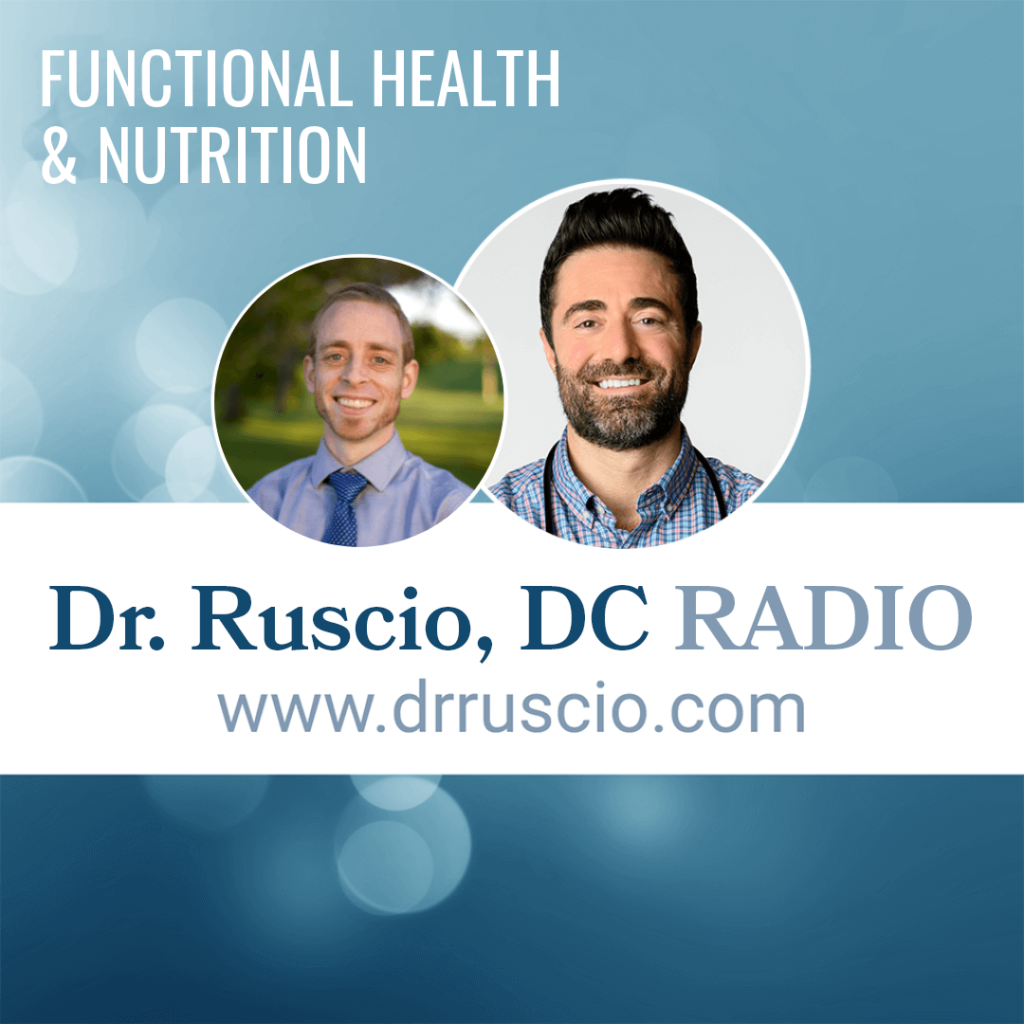Improving Mold Toxicity by Optimizing Protein and Exercise
How to find your exercise and protein consumption sweet spot to improve brain fog, chronic fatigue, and more with Dr. Joe Mather
When it comes to recovering from mold exposure, Dr. Joe Mather–the Medical Director at the Ruscio Institute for Functional Health–can speak from both personal and clinical experiences. Personally, his healing journey with mold was non-linear, with ups and downs that ultimately taught him how to push past limiting beliefs and find what works best. Clinically, he helps patients at our clinic overcome mold toxicity and its associated symptoms of brain fog, chronic fatigue, GI issues, and more.
Both experiences have given him unique insights into mold testing and treatment. In the episode, he expands on his story, and we share how protein, exercise, and thiamine and B-vitamin supplementation have particularly helped patients with mold toxicity, SIBO, and other conditions.

Download this Episode (right click link and ‘Save As’)
Dr. Michael Ruscio is a DC, natural health provider, researcher, and clinician. He serves as an Adjunct Professor at the University of Bridgeport and has published numerous papers in scientific journals as well as the book Healthy Gut, Healthy You. He also founded the Ruscio Institute of Functional Health, where he helps patients with a wide range of GI conditions and serves as the Head of Research.
➕ Dr. Ruscio’s, DC Notes
Quick Clinic Updates
- Dr. Joe is speaking at The Forum for Integrative Medicine (virtual), March 3-5.
- In 2022, two articles by our clinical team were published.
When Mold Is or Isn’t A Problem, According to Tests
- The RealTime Labs mycotoxin test panel yields the most accurate results.
- >10 or more toxins = mold is likely driving symptoms.
- 5-10 toxins = it’s likely mold is a problem.
- Less than 5 toxins = it’s less likely not mold toxicity disease, but still could be possible if symptoms and medical history align.
Dr. Joe’s Personal Experience with Mold Exposure
- His RealTime Labs mycotoxin test panel scores initially tallied up to 21, indicating mold was likely the root cause behind his fatigue, exercise intolerance, brain fog, and pain.
- With this test result, he removed himself from the mold exposure (his old work office), took binders, started gut and histamine support supplements, and enrolled in the GUPTA program.
- His score dropped down to 11, where he felt a lot better but was still battling exercise intolerance.
- To kill off the mold, he started an antifungal drug called Itraconazole. It ended up amplifying his symptoms and making him feel worse.
- Instead of the antifungal, he decided to push exercise again.
- After two weeks of exercising: He didn’t feel well.
- After four weeks of exercising: He felt the best he’s felt.
Healthy Stressors for Healing
- Cold showers
- Wim Hof breathing method
- Read Scott Carney’s What Doesn’t Kill Us: How Freezing Water, Extreme Altitude, and Environmental Conditioning Will Renew Our Lost Evolutionary Strength
Takeaways on the Link Between Protein and Muscle Mass
A meta-analysis looked at the dose-response relationship between protein intake and muscle mass increase.
- The parameters:
- In 105 studies, 5,402 participants were given supplemental protein for at least 2 weeks and assessed for changes in lean body mass (LBM).
- The findings:
- Protein supplementation was effective for increasing LBM with or without resistance training.
- However, once an individual exceeds 0.6 g/lb/dose, the increase in LBM slows down unless they add in resistance training.
- Protein supplementation was effective for increasing LBM with or without resistance training.
Improving Energy And Recovery With B-Vitamins, Protein, and Resistance Training
- For energy: Thiamine and B-complex vitamins have been very helpful for patients at our clinic who have chronic fatigue.
- For recovery: For patients at our clinic, a high-protein diet has helped with fatigue, chronic GI issues, mast cell activation, mold, and limbic imbalances.
- Dr. Joe recommends his patients:
- Eat 0.75 g/lb of protein for 3-4 months at first.
- Aim for 30-40g per protein per meal (add in a scoop of protein if trying to build muscle).
- For high-quality protein sources with a complete amino-acid profile, opt for collagen, whey, or pea protein.
- Dr. Joe recommends his patients:



Discussion
I care about answering your questions and sharing my knowledge with you. Leave a comment or connect with me on social media asking any health question you may have and I just might incorporate it into our next listener questions podcast episode just for you!